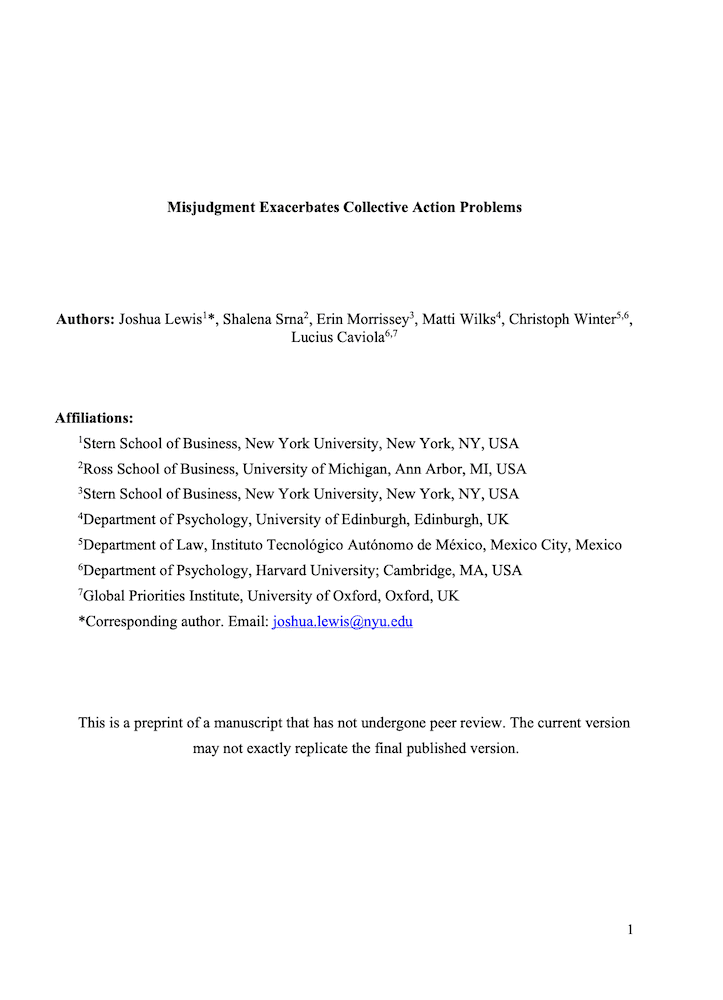Misjudgment Exacerbates Collective Action Problems
Joshua Lewis (New York University), Shalena Srna (University of Michigan), Erin Morrissey (New York University), Matti Wilks (University of Edinburgh), Christoph Winter (Instituto Tecnológico Autónomo de México and Harvard Univeristy) and Lucius Caviola (Global Priorities Institute, University of Oxford)
GPI Working Paper No. 2-2024
In collective action problems, suboptimal collective outcomes arise from each individual optimizing their own wellbeing. Past work assumes individuals do this because they care more about themselves than others. Yet, other factors could also contribute. We examine the role of empirical beliefs. Our results suggest people underestimate individual impact on collective problems. When collective action seems worthwhile, individual action often does not, even if the expected ratio of costs to benefits is the same. It is as if people believe “one person can’t make a difference.” We term this the collective action bias. It results from a fundamental feature of cognition: people find it hard to appreciate the impact of action that is on a much smaller scale than the problem it affects. We document this bias across nine experiments. It affects elected policymakers’ policy judgments. It affects lawyers’ and judges’ interpretation of a climate policy lawsuit. It occurs in both individualist and collectivist sample populations and in both adults and children. Finally, it influences real decisions about how others should use their money. These findings highlight the critical challenge of collective action problems. Without government intervention, not only will many individuals exacerbate collective problems due to self-interest, but even the most altruistic individuals may contribute due to misjudgment.
Other working papers
The case for strong longtermism – Hilary Greaves and William MacAskill (Global Priorities Institute, University of Oxford)
A striking fact about the history of civilisation is just how early we are in it. There are 5000 years of recorded history behind us, but how many years are still to come? If we merely last as long as the typical mammalian species…
Evolutionary debunking and value alignment – Michael T. Dale (Hampden-Sydney College) and Bradford Saad (Global Priorities Institute, University of Oxford)
This paper examines the bearing of evolutionary debunking arguments—which use the evolutionary origins of values to challenge their epistemic credentials—on the alignment problem, i.e. the problem of ensuring that highly capable AI systems are properly aligned with values. Since evolutionary debunking arguments are among the best empirically-motivated arguments that recommend changes in values, it is unsurprising that they are relevant to the alignment problem. However, how evolutionary debunking arguments…
Against Anti-Fanaticism – Christian Tarsney (Population Wellbeing Initiative, University of Texas at Austin)
Should you be willing to forego any sure good for a tiny probability of a vastly greater good? Fanatics say you should, anti-fanatics say you should not. Anti-fanaticism has great intuitive appeal. But, I argue, these intuitions are untenable, because satisfying them in their full generality is incompatible with three very plausible principles: acyclicity, a minimal dominance principle, and the principle that any outcome can be made better or worse. This argument against anti-fanaticism can be…

